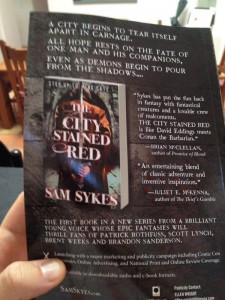Your Mother Rolls Natural 20s
I know I’ve mentioned this before, but have you ever read Zen Pencils?
Created by Gavin Aung Than, it’s a pretty inoffensive inspirational comic that revolves around artistic interpretations of words of wisdom touted by people who are well-known enough to get artistic interpretations made about them. Most of the time, I don’t really mind the comic because they all have a singular message that forms the foundation of their creations. And I usually agree with that message: art takes work, art takes sacrifice, art takes support. That’s all true, all encouraged and all for the better.
Beyond a few questionable strips and a peculiar statement toward the hilarious Dril Pencils, Zen Pencils is pretty inoffensive. And this blog post is not intended to criticize Zen Pencils or even talk about it beyond a paragraph or more. The only reason I bring it up is this.
Set over the course of four strips or so, it details the effect of criticism on the artist. I’m not quite so sure I agree.
I mean, I understand where the strip is coming from. It’s hard to be an artist or writer these days where the essential nature of the internet means you are closer than ever to your critics and anonymous dickwipes can and will easily use that closeness to try and hurt you. And given that creative works are, by their definition, something deeply personal, it’s incredibly easy to see how any criticism might be taken as a personal insult.
After all, very few artists create something they don’t feel strongly about on some level. And when people criticize, derogate or demean that, it usually feels like they’re attacking those feelings. Hence, I’m not often surprised when authors get personal or irritated or outright weepy when they get bad reviews.
Seriously. I got a shitty review that basically made me inert for three weeks or so. We all have that one review that just punched us straight in the nards. In the bars at conventions, huddled around high top tables with around three to six glasses on the table with just a few flecks of foam at the bottom, we talk about them often.
Everyone eventually finds a way to cope with criticism.
I’m usually content to leave it there, but the reason I bring this strip up is the same reason I’m bringing up this next article. You probably read about a prominent author who sought out and confronted an online critic in real life. It was all over the twitters for a bit. If you missed it, you can find a pretty apt summary here. But I won’t go into that any more than I did Zen Pencils. I bring up both for a singular reason.
We seem to be moving toward a rather unhealthy way of interacting with criticism.
This, too, is not a huge surprise. The internet is generally extremely personable these days, with everyone getting very excited over every thing and every thing that happens is an instant scandal that demands the attentions of the known world (or at least, the attentions of 10-200 retweets). So it’s hardly amazing that a personal product criticized in an environment where things are personal should be taken so personally.
But I’m not sure viewing criticism as a hostile force is the best way for authors to improve.
And rest assured, improvement should be at the very fore of your mind if you’re an author.
You should always be striving to improve. You should be consuming media en masse to improve: books and movies and books and games and books and comics and books and books and books. You should be identifying parts of your writing you aren’t happy with and parts of your writing that aren’t landing with your audience and parts of your writing that just don’t work and improving them.
And that means dealing with criticism. Sometimes even embracing it.
I could say “grow thicker skin,” but that’s always been a bit of a psychotic statement to offer a writer. You need thin skin to channel the emotions and to relate to people on the intimate level necessary to write characters well. Hence, what I want to offer you is three facts about criticism that you can use to learn to use it to your advantage.
1. You don’t have to read it.
I don’t know a lot of authors who do read their own reviews, in fact. At the beginning, everyone does it and every point cuts knife-deep. You fume and anger over the unfairness of this author who clearly doesn’t understand your book and how their false review is going to sink sales.
Generally, bad reviews don’t sink sales. If that were true, Fifty Shades of Grey and Twilight wouldn’t be the phenomena they are. Bad word of mouth can certainly sink sales. But surprisingly, the worlds of reviews and word of mouth rarely seem to cross over. Certainly, some reviewers build up communities around their critiques, but they don’t always translate into sales.
When someone hears a well-reasoned, rational critique from an educated voice that says “don’t buy this,” and their friend who says “dude, you have to buy this,” they will always listen to their friend.
The critique is not done for your sake. Sometimes it’s for the reader’s sake, sometimes it’s for the critic’s sake, sometimes it’s for an audience. You miss out on absolutely nothing by not looking at it.
Some critiques can be very helpful. One critique of Tome of the Undergates took issue with the various crude sexual threats uttered by the Cragsmen. I found that extremely helpful because I ultimately agreed with the critic. I found them harder to justify as they were just ugly for ugliness’ sake, a biproduct of an edgier age.
But it had been years since I got over those first initial reviews and I was more prepared to handle harsh words about my work. If you’re ever in doubt, err on the side of not looking.
2. Criticism is, ultimately, a force for good.
Possibly the most important thing to do when approaching criticism is to take it in the right mindset. When you’re just starting out, it’s easy to be offended and reject it all out of hurt. When you’re old and jaded, it’s easy to be weary and reject it all out of boredom.
But when reviewing, it helps to take a moment to realize what you’re looking for.
Consider what you wanted to accomplish in your story; if the review suggests you accomplished that, you can ignore it if they didn’t like it. Consider what you’re concerned about; if the review touches on that, then maybe you have an identified problem. Consider that you might be criticized for things you didn’t anticipate; if the review brings up things that you never even thought of, these are worth looking at.
3. Control is always in your hand.
The personal nature of a creative work and the personal responses we’ve discussed can sometimes make it seem like criticisms are demands: letters from magazines cut up and pasted to form a message and mailed to you with a polaroid of your book tied to a chair. But rest assured, this is never the case.
As a work is personal, so is a criticism. The critic will always be coming from their own experiences and points of view. You can’t plan for that and you shouldn’t try. Hence, when a critic criticizes a deliberate choice you made as a mistake, you are free to reject that. You are free to reject any criticism, really. There is wisdom in paying attention to people who are all saying the same thing, of course, but ultimately all control over the creation rests with you.
And this is the “zen” of this blog, if you will: you can only control the book.
You can’t control the reviewers; if they like it, then good, if not, then okay. You can’t control the audience; if they reject it, then you must think of something else. You can’t control the publishing industry; it’s basically like a cat who wallows in scotch. You can’t control any of the thousands of other things out there that will affect your book.
You can only ever write the very best book you can.
And you should always be striving to do exactly that.
Your Mother Rolls Natural 20s Read More »













